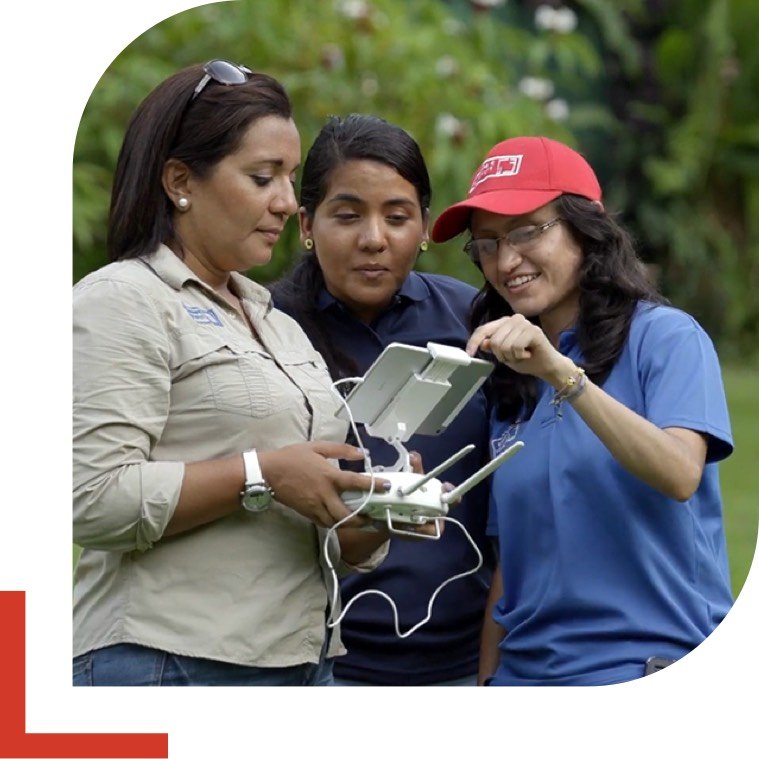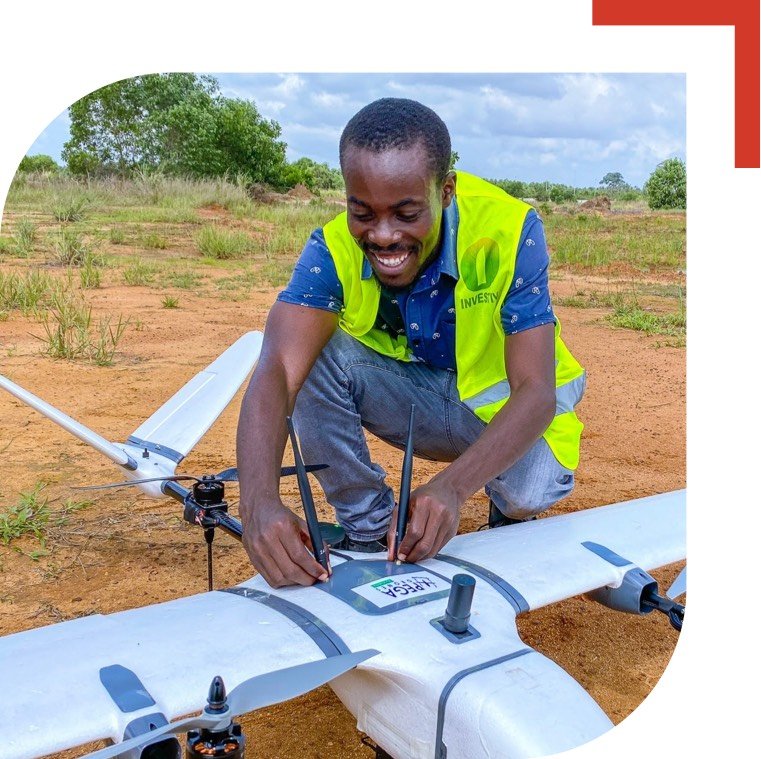WeRobotics and Flying Labs want to put African communities in charge of drones and the data they produce
A fascinating discovery from the Ashoka Network - Sonja Betschart, co-CEO of WeRobotics and Flying Labs. As her appearance in the Forbes 50 over 50 list pithily puts it:
Betschart is a social entrepreneur who cofounded WeRobotics in 2015. The company builds “flying labs”—drone, data and AI training centers—across countries in Africa, Latin America and the Asia-Pacific region. Her goal is to create a network of technology experts across the global south who can use these skills to build businesses and solve problems across their communities’ agricultural, health and entrepreneurial sectors.
That understates the commitment to distributing expertise from North to South that Betschart is involved in. As Ashoka wrote in its 2022 announcement of their award to Betschart:
Sonja has developed a new framework to ensure that local experts across the Majority World have the know-how and power to drive technology-rich solutions to developmental challenges their local communities care about most.
This Inclusive Network model intentionally limits the power footprint of iNGOs by cultivating respect for the ‘power of local’, and by convening national and regional actors committed to the same work in a shared governance and implementation model.
Having worked in large organizations, startups, and in the humanitarian and tech for good sectors for more than 25 years, Sonja launched her model’s first iteration, the Flying Labs Network, in 2016. Local demand in Nepal, Tanzania, and Peru for better access to drone and AI technology set things in motion.
WeRobotics then helped to convene local organizations, universities, and research centers in these first 3 countries as “knowledge and collaboration spaces” for drone use for positive social impact.
Sonja and her colleagues enabled technology transfer through training in drones and data collection. They also convened donors and technology partners to support locally selected and administered projects.
The success of these very first Flying Labs soon led to demand for the same in many other countries. Since 2018 and playing the role of “network implementer and facilitator”, WeRobotics has enabled the creation of the Flying Labs Network and another 30 Flying Labs across Asia, Africa, and Latin America.
Flying Labs are independent and demand driven. They decide together with local partners when and how to apply technology to address local challenges related to the SDGs. More than 220 local experts and 175 local partners across the Network are now engaging both private and public sector organizations to implement these locally generated and/or administered projects. The network continues to grow organically at a constant pace.
Sonja acknowledges that ideas similar to the Flying Labs Network - and the Inclusive Network model powering it - have emerged in the tech for good sector. But their focus has been mainly on the ‘what’ – i.e., access to technology – rather than on the ‘who’. Sonja’s model is unique in how it cultivates respect for agency and lived experience in local contexts and offers a blueprint for catalyzing and expanding local expertise.
WeRobotics plays a part in supporting local experts to upskill and gain access to knowledge, opportunities, technology, and contacts, but all Flying Labs are independent and locally led. Flying Labs have started to facilitate knowledge transfer across the network, completely independent of WeRobotics. India Flying Labs leads a masterclass for other Flying Labs on advanced drone use. Panama Flying Labs convenes regional conferences for the sharing of best practices across the Latin American network.
And WeRobotics itself is already planning its exit as facilitator in the next four years. The Inclusive Network model is therefore starting to shift what ‘aid’ looks like in the Majority World, and Sonja’s prolific writing and speeches on the topic are starting to get attention from colleagues at other iNGOs, the UN, World Bank, International Red Cross, and WEF.
As an example of Sonja’s writing and speeches, click on the image below for a recent presentation:
Click on picture above or this link for video
And below some testimony from Senegal Flying Labs:
I think drone technology is responding to our needs even more than to those of people in other parts of the world. In more developed parts of the world, drones might be used for maintenance and making films.
In Africa, we use drones for data collection because parts of our continent do not have accurate, ready-to-use geospatial data.
Lots of places on the continent are not covered by satellite and also connectivity doesn’t cover some parts of the continent to access online geospatial data. We need data for decision making that is readily available and can be produced without the need of internet connectivity.
— Tiamayou Radji, Director, Senegal Flying Labs
It’s quite a vision - African (and other) communities adapting.drone technologies to serve local, non-military needs. Something to learn from, if we want cosmo-localism in the Northern hemisphere.



